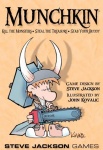 Rolling for Initiative is a weekly column by Scott Thorne, PhD, owner of Castle Perilous Games & Books in Carbondale, Illinois and teaches marketing at Southeast Missouri State University. This week, Thorne talks about how gamers evaluate products.
Rolling for Initiative is a weekly column by Scott Thorne, PhD, owner of Castle Perilous Games & Books in Carbondale, Illinois and teaches marketing at Southeast Missouri State University. This week, Thorne talks about how gamers evaluate products.Sell the sizzle not the steak (also written as "To sell the steak, you have to sell the sizzle") is an old marketing axiom, attributed to an advertising copywriter named Elmer Wheeler who worked during the 1920s and 1930s. It means that people do not purchase a product. Rather they purchase an outcome or what the product can do for them. They purchase benefits, not features. They are interested in what the product can do for them, not what it actually is. They buy the experience, not the item. In the case of the steak, they purchase the atmosphere, the smell, the sound, the taste and the way they feel when they are eating the steak. The meat itself is secondary.
Same thing with games. You don't purchase the game per se, you purchase the outcome or feeling that you want the game to provide. For example, look at Munchkin. I have never been so wrong about the sales potential of a game. When Munchkin first came out, I remember thinking, "What is Steve Jackson Games doing? Two decks of cards and a rules sheet in a box four times the size of the contents. People are never going to pay $25 for this." (I also knew a lot less about marketing and consumer behavior back then) Needless to say, as I stare today at two shelves filled with Munchkin boxed games, supplements and additional paraphernalia, such as bobble-heads and dice, I have never made so erroneous a statement. Over a million total copies of Munchkin goodness sold say so.
Munchkin is a textbook example of selling the sizzle, not the steak. People are not buying the two decks of cards, rules sheet and box. They purchase the experience of playing the game, the fun of sitting around a table and getting silly with a group of friends, or the hope they will successfully replicate the experience they had of playing the game with a different group of friends when they bring home their own copy.
Take Dominion, Nightfall or any of the other games in the currently hot deck-building genre. I have never yet had a customer come to the counter and ask, "How many cards does this game come with?" They want to know how many people can play with the basic set, how long it takes to play, has anyone else played it and what did they think about it? Nothing about card quality, how long the rulebook is, how the cards are stored, or any other questions about the components. Features don’t matter to the customer, benefits do. They want to know if the money they spend on this game will provide them with at least as much enjoyment (or preferably more) than an equivalent amount spend on other forms of entertainment such as movies, books, video games, tickets to various events, dinner with the significant other (or just friends) or beer. As long as you show them that the benefits they derive from purchasing the game equal or exceed the benefits they would derive from spending the money on something else, you make the sale. If the customer does not perceive greater benefits from purchasing the game than from spending the money on some other form of entertainment, their money stays in their pocket.
The opinions expressed in this column are solely those of the writer, and do not necessarily reflect the views of the editorial staff of ICv2.com.


